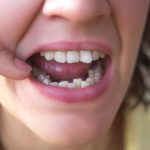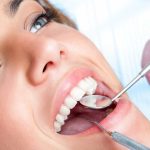When to Brush Teeth After Wisdom Tooth Extraction: A Comprehensive Guide
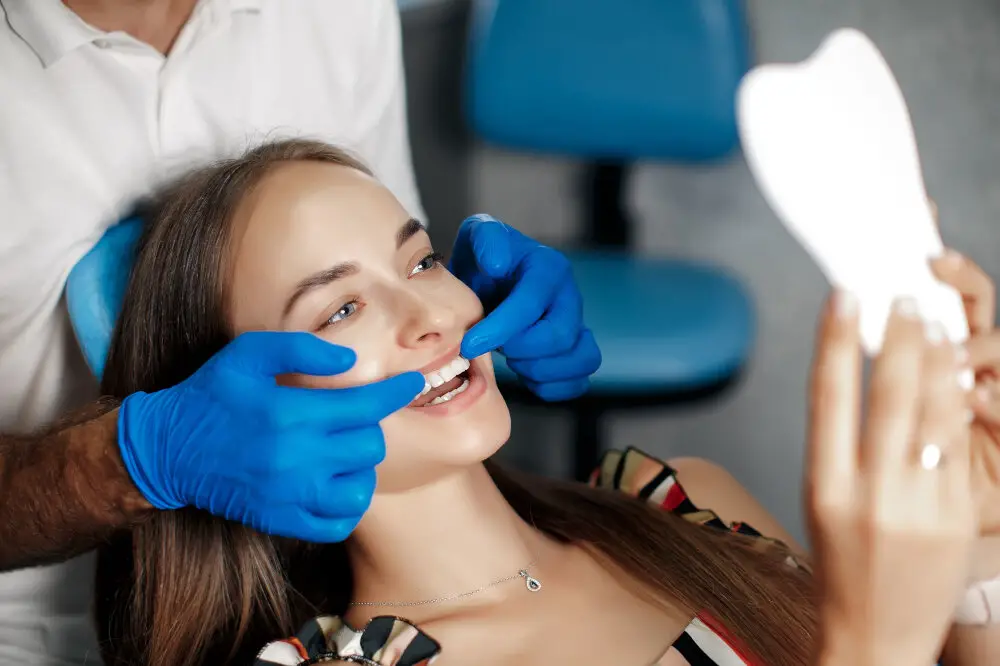
Wisdom tooth extraction is a common dental procedure performed to remove one or more of the third molars. While it is a routine surgery, it requires proper care and attention to heal properly. One of the essential aspects of recovery is maintaining oral hygiene. Brushing your teeth after wisdom tooth extraction is crucial to keep your mouth clean, prevent infection, and promote healing. However, many people are unsure of when they should start brushing their teeth after the procedure. In this comprehensive guide, we will discuss when to brush teeth after wisdom tooth extraction and provide tips on how to care for your mouth during recovery. The first 24 hours after wisdom tooth extraction are critical for healing. During this time, you should avoid brushing your teeth, rinsing your mouth, or using mouthwash. Doing so can disrupt the blood clot that forms in the socket and lead to a painful condition called dry socket. However, you can still clean your mouth by gently wiping the teeth and gums with a damp cloth or gauze pad. After the first day, you can start brushing your teeth, but you need to be careful not to damage the surgical site. Brushing your teeth after wisdom tooth extraction requires a gentle touch and a soft-bristled toothbrush. In the following sections, we will go into further detail on when and how to brush your teeth after wisdom tooth extraction.
Wisdom tooth extraction is a dental procedure that involves the removal of the third molars located at the back of the mouth. These teeth can cause discomfort, pain, and swelling when they emerge, which can be a result of impaction, infection, decay, or overcrowding. The extraction process is typically performed by a dentist or oral surgeon using local anesthesia, sedation, or general anesthesia, depending on the complexity of the case. After the procedure, patients are advised to follow specific instructions on how to care for the extraction site to promote healing and prevent infection. This may include brushing teeth gently, avoiding certain foods and drinks, and taking painkillers and antibiotics as prescribed.
Maintaining good oral hygiene after a tooth extraction is crucial to promote healing and prevent infections. After a tooth is removed, a blood clot forms at the site of the extraction, which protects the underlying bone and nerve endings while they heal. However, this clot can be dislodged by brushing too aggressively, which can delay healing and cause a painful condition called \dry socket.\ Therefore, it is important to brush gently around the extraction site, avoiding the area for the first 24 hours after the procedure. After that, a soft-bristled brush should be used to clean the teeth and gums, being careful not to disturb the clot. Rinsing with saltwater can also help to keep the area clean and reduce inflammation. By following these guidelines, patients can ensure that their mouth heals properly and quickly after a tooth extraction.
Immediate postextraction period (024 hours)
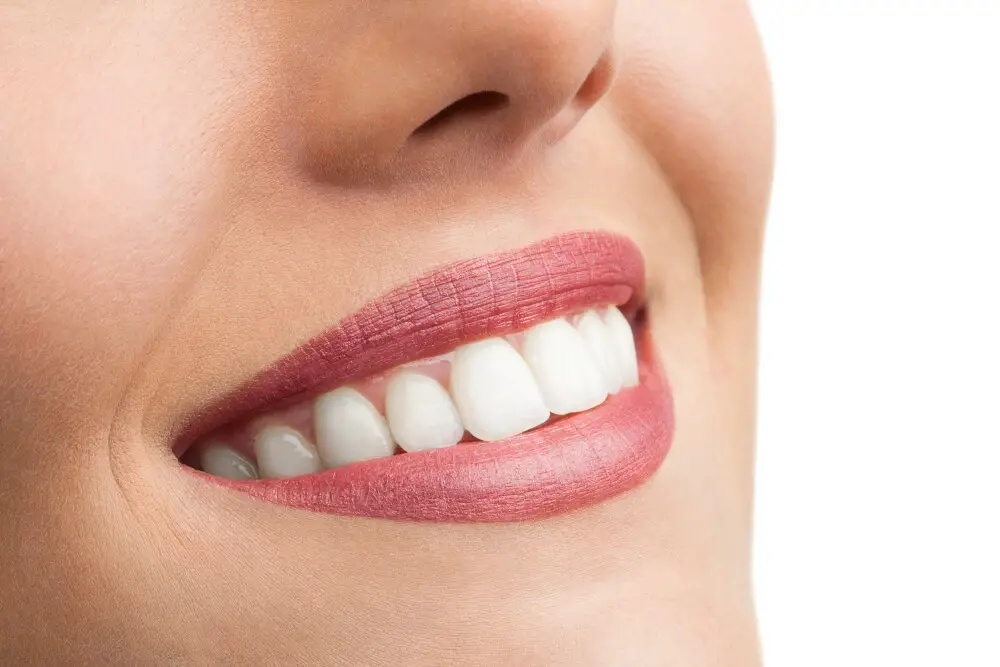
The immediate postextraction period, which refers to the first 24 hours after wisdom tooth extraction, is a crucial time for proper oral care. During this time, the patient should avoid touching the extraction site and refrain from rinsing or spitting for at least 24 hours to allow the blood clot to form and stabilize. Activities such as smoking, drinking through a straw, and consuming hot or spicy foods should also be avoided as they can dislodge the blood clot and lead to dry socket. Pain and swelling are expected during this period and can be managed with ice packs, pain medication, and rest. It is recommended to follow a soft or liquid diet during the immediate postextraction period to avoid placing pressure on the extraction site. The patient should also avoid brushing the teeth near the extraction site to prevent irritation or disruption of the blood clot. Instead, the teeth can be gently cleaned using a damp cloth or gauze pad. It is important to maintain good oral hygiene during the immediate postextraction period by brushing the teeth in areas away from the extraction site and gently rinsing the mouth with saltwater after meals. With proper care during this period, the patient can promote healing and prevent complications such as infection and dry socket.
The first 24 hours after a wisdom tooth extraction are crucial for the healing process. Immediately after the procedure, a gauze pad is placed on the extraction site to control bleeding and to allow a blood clot to form. It is important to avoid touching the area with your tongue or fingers and to avoid rinsing or spitting for the first 24 hours. Instead, focus on keeping your head elevated and applying ice packs to the affected area to reduce swelling. Pain management is also important during this time, and your dentist may prescribe pain medication or recommend over-the-counter pain relievers. It is crucial to follow your dentist’s post-operative instructions for the first 24 hours to ensure proper healing and to avoid complications.
After a wisdom tooth extraction, the healing process is crucial to prevent infection and promote proper recovery. One of the most important aspects of the healing process is maintaining good oral hygiene. However, brushing teeth immediately after the procedure is not recommended as it can dislodge the blood clot that has formed in the socket, which can lead to a painful condition called dry socket. Dry socket occurs when the blood clot is dislodged, exposing the nerves and bone in the socket. This can cause severe pain and delay the healing process. Instead, rinsing gently with salt water and avoiding smoking, drinking through a straw, and hard and crunchy foods is recommended to promote healing. Only resume brushing after the first 24 hours, and even then, it should be done gently and with care to avoid causing any damage to the healing socket.
Maintaining oral hygiene is crucial after wisdom tooth extraction to prevent infection and promote healing. Brushing should be done gently, avoiding the extraction site for the first 24 hours. After that, a soft-bristled brush can be used to gently clean the area, along with the rest of the teeth and gums. Using a saltwater rinse can also help to reduce inflammation and kill bacteria. Avoiding tobacco products, hard and crunchy foods, and drinking through a straw can also aid in the healing process. Consistent oral hygiene practices can help to ensure a smooth and speedy recovery after wisdom tooth extraction.
First few days after extraction (2472 hours)
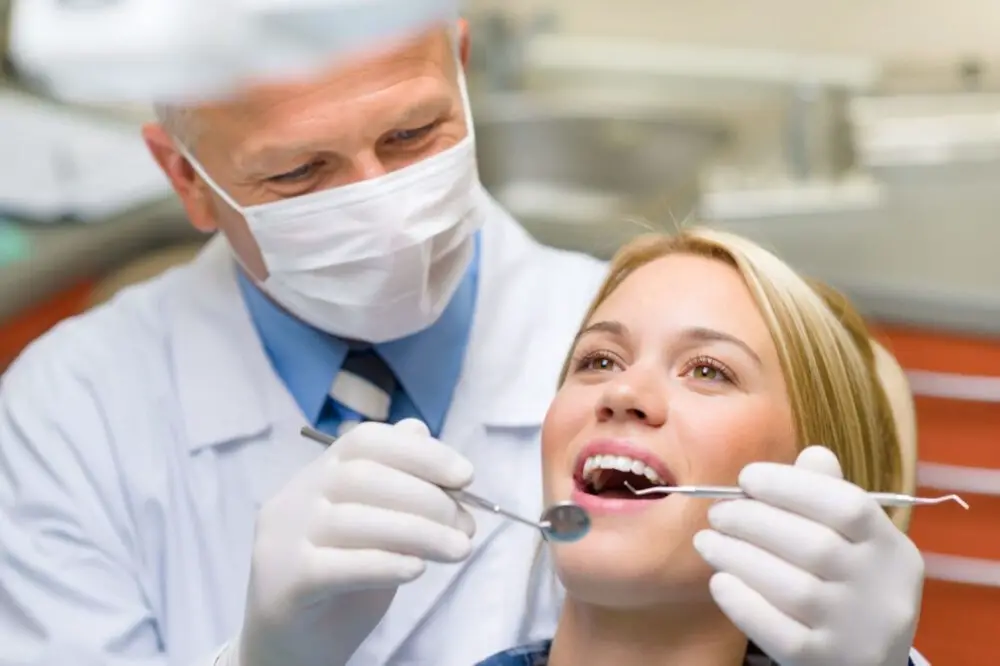
The first few days after a wisdom tooth extraction can be challenging for patients. It is normal to experience pain, swelling, and bleeding at the surgical site. It is important to follow the dentist’s instructions carefully during this time to ensure proper healing. Patients should avoid strenuous activity, smoking, and consuming alcohol for the first 24 hours after the procedure. They should also avoid using a straw, as the sucking motion can dislodge the blood clot at the surgical site, leading to a painful condition called dry socket. Patients should stick to a soft diet and avoid foods that are hot or spicy for the first few days after the procedure. They should also use an ice pack on their face to reduce swelling and discomfort. Patients should also be sure to keep the surgical site clean to prevent infection. They can do this by gently rinsing their mouth with warm saltwater several times a day. However, they should avoid using mouthwash or brushing the area for the first 24 hours after the procedure. After this time, they can gently brush the teeth around the surgical site, being careful to avoid the area itself. Patients should also avoid touching the surgical site with their tongue or fingers, as this can introduce bacteria into the area and slow down the healing process. By following these guidelines, patients can ensure a smooth recovery from their wisdom tooth extraction.
After wisdom tooth extraction, the next few days are crucial for recovery. It’s normal to feel some post-operative pain and swelling, which can be managed with ice packs and pain medication prescribed by your dentist or oral surgeon. You should avoid brushing your teeth for the first 24 hours after extraction to prevent dislodging the blood clot that helps the healing process. After 24 hours, you can begin gently brushing your teeth, being careful to avoid the extraction site. Rinsing your mouth with salt water can also promote healing and reduce swelling. It’s important to follow your dentist’s post-operative instructions carefully and avoid smoking, drinking through a straw, or consuming hard or crunchy foods, which can all interfere with healing. With proper care, you should feel back to your normal self within a week or two.
After wisdom tooth extraction, it’s important to allow the gums to heal properly before resuming regular dental hygiene practices. Generally, it’s safe to resume brushing your teeth the day after the procedure, but it’s important to take certain precautions. Gentle brushing is recommended, and it’s important to avoid the extraction site, as well as any blood clots or stitches that may be present. Patients should also rinse their mouth gently with warm salt water several times a day to keep the area clean and promote healing. While brushing teeth after wisdom tooth extraction can be uncomfortable, with proper care and attention, patients can protect their oral health and ensure a smooth recovery process.
In addition to brushing your teeth after wisdom tooth extraction, there are other oral hygiene practices that are equally important to follow during this period. One such practice is rinsing your mouth with saltwater several times a day. This helps to reduce swelling and inflammation in the affected area and also aids in preventing infection. Another vital practice is maintaining proper oral hygiene by ensuring that you brush and floss regularly. However, it is important to be gentle while brushing and avoid the extraction site during the first few days to prevent dislodging the blood clot. Additionally, avoid smoking and consuming alcohol, as they can hinder the healing process and increase the risk of infection. By following these oral hygiene practices, you can ensure a speedy recovery and prevent complications after your wisdom tooth extraction.
First week after extraction (37 days)
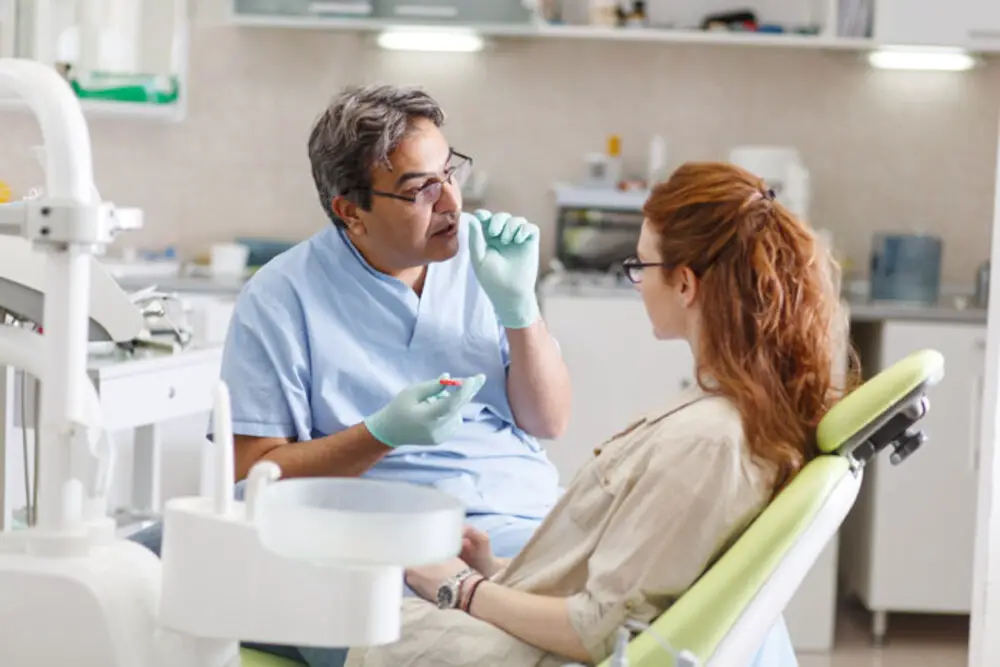
The first week after an extraction is crucial for proper healing and recovery. During this time, it is important to follow your dentist’s instructions carefully and avoid any activities that can cause damage to the extraction site. You may experience some pain and swelling, which can be managed with over-the-counter pain relievers and ice packs. It is also important to maintain good oral hygiene during this time, but be careful when brushing near the extraction site to avoid disturbing the blood clot that is forming. Your dentist may recommend rinsing your mouth with warm salt water to help promote healing and reduce inflammation. It is important to avoid smoking, drinking alcohol, and using straws during this time, as these activities can all impede healing and increase the risk of complications. As the days go by, you should start to feel better and experience less pain and swelling. However, it is important to continue to be diligent with your oral hygiene and follow your dentist’s instructions for post-operative care. You may be advised to gradually introduce softer foods into your diet and avoid hard or crunchy foods that can irritate the extraction site. If you experience any signs of infection, such as fever, severe pain, or pus, it is important to contact your dentist immediately, as these can be signs of a more serious complication. With proper care and attention, you can ensure a smooth and successful recovery from your wisdom tooth extraction.
The first week after a wisdom tooth extraction can be a challenging time for patients. During this period, it is important to avoid any strenuous activity, such as exercise, as this can increase blood flow to the extraction site and delay healing. Patients should also avoid smoking and drinking through a straw, as the suction can dislodge the blood clot that forms in the socket after the extraction. Pain, swelling, and bruising are common during the first few days after the procedure, but can be managed with pain medication and ice packs. Patients should stick to a soft food diet and avoid hard or crunchy foods that can irritate the extraction site. It is also important to maintain good oral hygiene by gently rinsing the mouth with salt water and avoiding brushing or flossing directly around the extraction site for the first few days. Overall, patients should rest, take care of themselves, and follow their dentist’s instructions to ensure a smooth recovery.
After wisdom tooth extraction, it is important to follow the dentist’s instructions carefully to promote healing and prevent any complications. Regular brushing can be resumed as early as the day after the procedure, however, it is crucial to avoid brushing the extraction site for the first 24 hours. After this initial period, brushing should be done gently and carefully, avoiding any direct contact with the extraction site. It is recommended to use a soft-bristled toothbrush and a non-alcoholic mouthwash to maintain oral hygiene and prevent infection. Additionally, it is important to avoid using toothpaste that contains sodium lauryl sulfate, as it can irritate the extraction site and delay the healing process. Gradually increasing the intensity and frequency of brushing over time can help ensure proper healing and a speedy recovery.
After a wisdom tooth extraction, it’s essential to maintain proper oral hygiene to promote healing and prevent infection. However, it’s equally important to be gentle and avoid the extraction site while brushing. Aggressive brushing can dislodge the blood clot, which is crucial for proper healing, and delay the healing process. Instead, use a soft-bristled toothbrush and be mindful of the area around the extraction site. Additionally, rinsing with warm salt water can help keep the area clean and reduce inflammation. By following these gentle brushing practices, you can ensure a quicker and more comfortable healing process.
In addition to brushing your teeth and tongue gently, there are other oral hygiene practices to follow after wisdom tooth extraction. Rinsing your mouth with warm salt water can help reduce swelling and discomfort, as well as promote healing. It is also important to avoid smoking or using tobacco products, as these can slow down the healing process and increase the risk of infection. Additionally, using a soft-bristled toothbrush and avoiding hard or crunchy foods can prevent damaging the surgical site and delay healing. By following these oral hygiene practices, patients can ensure proper healing and a speedy recovery after wisdom tooth extraction.
Longterm oral hygiene after extraction
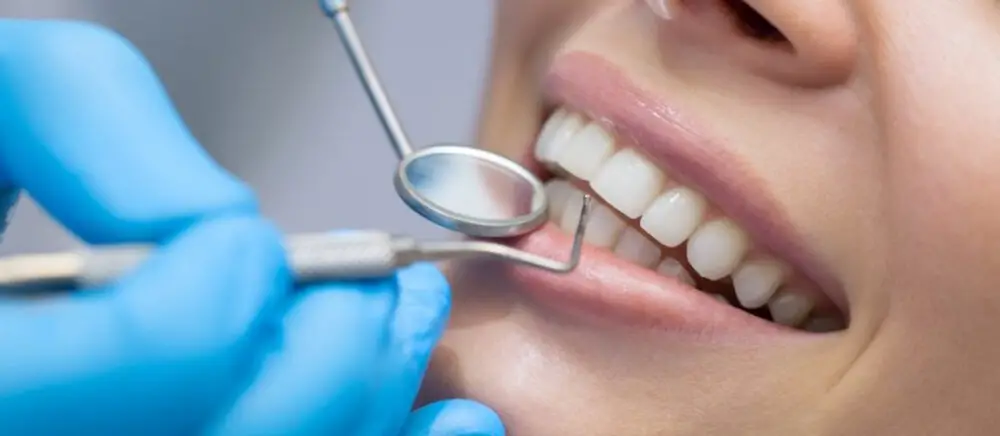
Maintaining good oral hygiene after extraction is crucial to ensure proper healing and prevent any complications. It is recommended to avoid brushing the extraction site for the first 24 hours after the surgery to avoid disrupting the blood clot that forms in the socket. After that, gentle brushing with a soft-bristled toothbrush is necessary to keep the area clean and prevent infection. Avoid using toothpaste that contains harsh ingredients, as they can irritate the wound and delay the healing process. Rinsing with a saltwater solution can also help to reduce swelling and promote healing. Additionally, it is important to avoid smoking and consuming alcohol for at least 48 hours after the surgery, as they can delay the healing process and increase the risk of complications. It is also recommended to avoid eating hard and crunchy foods that can dislodge the blood clot and cause further pain and bleeding. Opt for soft and easy-to-chew foods such as mashed potatoes, soup, and smoothies for the first few days after the surgery. Maintaining good oral hygiene and following the post-surgery instructions provided by your dentist or oral surgeon can help to ensure proper healing and prevent any long-term complications.
Maintaining good oral hygiene practices is crucial for overall dental health. Even after a wisdom tooth extraction, it is important to continue brushing and flossing daily to prevent infection and promote healing. Failure to maintain good oral hygiene can lead to complications such as dry socket, a painful condition that occurs when the blood clot that forms after extraction is dislodged. Additionally, poor oral hygiene can lead to the development of gum disease and tooth decay, which can ultimately lead to the loss of more teeth. By keeping up with good oral hygiene practices, individuals can ensure a healthy, beautiful smile for years to come.
After a wisdom tooth extraction, it is crucial to let the blood clot form and heal properly before resuming flossing and using mouthwash. Typically, it takes around 24 hours for the blood clot to form, and it’s recommended to avoid any strenuous activities such as exercise, smoking, or using straws that can dislodge the clot. Once the clot has formed, usually around day two or three, you can begin to gently rinse your mouth with saltwater or diluted mouthwash. However, you should wait at least a week before resuming flossing to avoid disturbing the healing process. It’s essential to consult with your dentist or oral surgeon for specific instructions on when to resume flossing and using mouthwash after wisdom tooth extraction.
Maintaining good oral health after a tooth extraction is crucial for a speedy recovery. The first 24 hours after the surgery, one should avoid brushing and rinsing. After that, gentle brushing is recommended twice a day, making sure to avoid the surgical site. Rinsing with saltwater or a prescribed mouthwash can help reduce swelling and prevent infection. One should avoid smoking, drinking alcohol, or using a straw as it can dislodge the blood clot and delay healing. Soft foods should be consumed for the first few days and gradually introducing harder foods as the site heals. Finally, keeping up with regular dental check-ups and maintaining a good oral hygiene routine can prevent future dental problems.
In summary, brushing your teeth after a wisdom tooth extraction is crucial for maintaining good oral hygiene and preventing infection. However, it is recommended to wait at least 24 hours after the procedure before brushing the affected area to avoid disturbing the blood clot and causing further complications. It is also important to use a soft-bristled toothbrush and avoid vigorous brushing, especially around the extraction site. Rinsing with saltwater and using prescribed mouthwash can also aid in the healing process. Overall, following your dentist’s instructions and taking proper care of your teeth and gums can help ensure a smooth recovery after a wisdom tooth extraction.
Following a dentist’s advice is crucial for maintaining good oral health and preventing any potential complications. After wisdom tooth extraction, it’s important to listen to your dentist’s instructions on when to brush your teeth to ensure proper healing and prevent infection. Ignoring their advice can lead to dry sockets, which is a painful condition that occurs when the blood clot is dislodged, exposing the bone and nerves. By following the dentist’s advice, you can minimize the risk of complications and promote a speedy recovery, leading to improved oral health in the long run.
Maintaining good oral hygiene is crucial for overall health, especially after undergoing a tooth extraction, such as wisdom tooth removal. Even though the wisdom tooth is no longer present, the surrounding teeth and gums still require proper care to avoid infection or other complications. It is essential to continue brushing your teeth twice a day, flossing daily, and using an antiseptic mouthwash to keep your mouth clean and free from bacteria. Additionally, avoid smoking, alcohol, and hard or crunchy foods for a few days after extraction to promote healing. By following these steps, you can ensure a speedy recovery and maintain healthy oral hygiene for years to come.
Conclusion

In conclusion, taking care of your teeth after wisdom tooth extraction is crucial to ensure proper healing and prevent any complications. It is recommended to wait at least 24 hours before brushing your teeth, but gentle rinsing with saltwater can aid in keeping the mouth clean during this time. After the first day, brushing with a soft-bristled toothbrush and being careful around the extraction site can promote healing and prevent infection. It is important to follow the advice of your dentist or oral surgeon and maintain good oral hygiene practices to ensure a smooth recovery. By being diligent in your oral care routine, you can minimize discomfort and ensure a healthy and happy smile.






